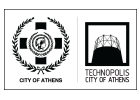Mimicking Nature for Energy-Efficient Computing
Recent years have witnessed a tremendous explosion of data, which continues unabatedly: It is estimated that the digital universe is growing at a rate of about 60% per year. We are ushering in a new era of computing, namely, the cognitive era, in which the data is considered a new natural resource. However, cognitive computers based on the classical von-Neumann computing architecture pose serious challenges in terms of area and power consumption. This has triggered research efforts to unravel and understand the highly efficient computational paradigm of the human brain, with the aim of creating brain-inspired artificial cognitive systems and potential scalability. During the presentation we will focus first on spiking neural networks (SNNs), which are considered by many as the third-generation neural network,s and send on a fascinating new non-von Neumann approach known as “computational memory”, where the physics of nanoscale memory devices is exploited to perform certain computational tasks within the memory unit
Participants:
Evangelos Eleftheriou, IBM Fellow
IBM Research – Zurich, Switzerland
Evangelos Eleftheriou, a graduate of the Department of Electrical and Computer Engineering of the University of Patras, received his Ph.D. in Electrical Engineering from Carleton University, Ottawa, Canada in 1985. In 1986, he joined IBM as a research associate in the labs found near Zurich, in Rüschlikon, Switzerland. Since 1998, he has held several management positions, and today he is responsible for IBM’s Neuromorphic Computer Intelligence activities in Zurich. He is the author (and co-author) of more than 200 publications and holds more than 160 patents (applications and pending applications included). In 2002, he was elected Fellow of the IEEE (Institute of Electrical and Electronic Engineering). In 2003 he was co-awarded the IEEE Communications Society Award Leonard G. Abraham. In 2005 he became member of the IBM Academy of Technology and he was also the co-recipient of the Eduard Rhein Foundation Technology Award. In addition, in the same year, he was named IBM Fellow for his ground breaking work in recording and communication techniques, which established new performance standards for hard disk technology.





